What Is a Space Heater? Pros, Cons, Types, & Info
-
Pete Ortiz
- Last updated:
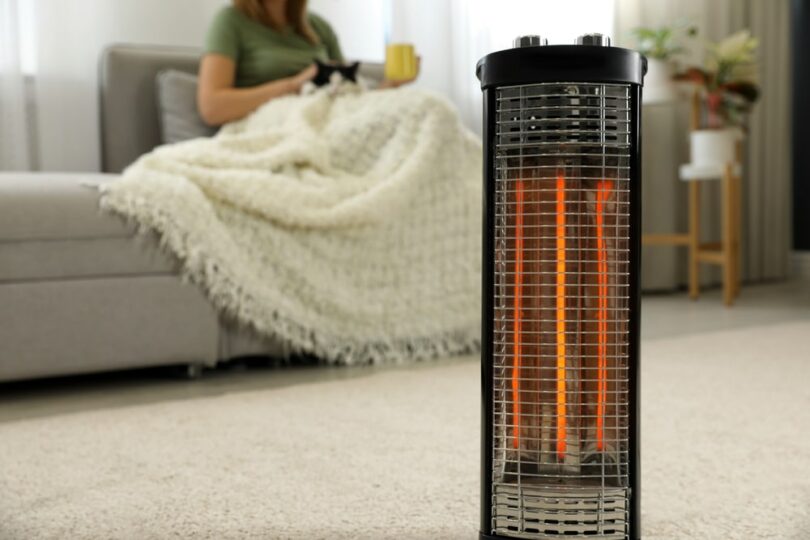
Whether you live in a predominantly cold area or are prone to staying in a cold room, space heaters are excellent home fixtures that can help you warm up a chilly room. These devices provide localized and focused heat when the central heating system is inadequate.
Generally, space heaters provide effective heating solutions if you want to heat a specific room instead of cranking up the thermostat of the entire house, especially during winter. They are also ideal for rooms occupied by the sick and elderly or people with limited mobility. However, because of the heating element, space heaters are dangerous home fixtures. According to the Consumer Product Safety Commission, space heaters are the source of thousands of home fires every year¹.
Therefore, it is of vital importance that you understand as much as possible about space heaters to avoid burning down your home. Since these devices are pricey, understanding them will also help you make the best purchase decision that suits your needs.
In this article, we will investigate what space heaters are and how they work. We will also highlight the different types of space heaters in the market and where they are best used. Let’s get started!
How Do Space Heaters Work?
Space heaters may retail with different names, but they are generally small portable devices whose main purpose is to warm up individual rooms in the house. They are usually installed when central heating is expensive, when there is inadequate heat output, or when one cannot control ambient temperatures in a localized space.
There are different categories and varieties of space heaters in the market. They come in different shapes, capacities, and designs and can be placed almost anywhere in a house, provided there are no flammable materials nearby. Sure, the working principles might work on most standard heaters, but each model has unique variations. These devices can run on natural gas, propane, kerosene, or electricity. However, most portable heaters rely on electricity whose basic component is the electrical resistor.
Once you turn the heater on, the electrical current produced heats the wire components (made up of nichrome) in the unit. Also known as heating coils, they turn electrical energy into heat as the current flows through the resistor. This is perhaps why electric home heaters are often referred to as resistance heating units in some circles.
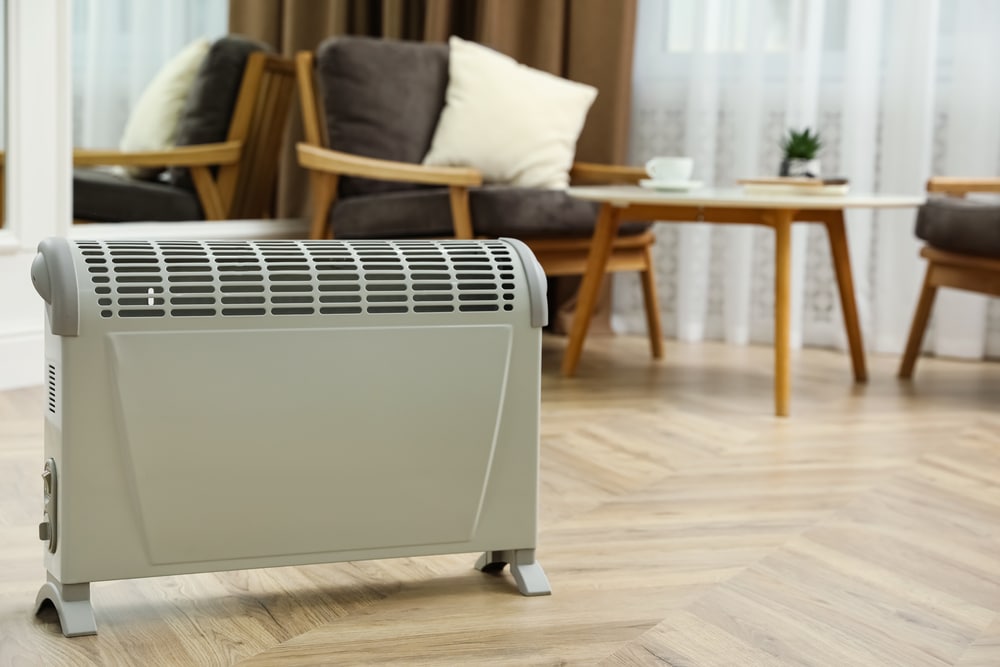
What Are the Different Types of Space Heaters?
As you may have gathered, there are different types of space heaters available on the market. If you are unfamiliar with space heater technology, terms such as vented, infrared, ceramic, and convection heaters can make choosing the right model for your needs very overwhelming.
When space heaters supplement your home’s central heating, each type can significantly reduce the overall heating bill in your home. However, this doesn’t mean that your electrical bill will not increase ever so slightly, but the overall savings in electric bills and the flexibility in installing space heaters make them worthwhile home fixtures.
When choosing a heater, make sure that it is the proper size for the room you intend to place it in. Purchasing an oversized heater can be a fire hazard and it may not even heat the room properly. It can raise the room temperature to uncomfortable levels, and as such should be avoided at all costs.
Generally, space heaters are categorized into either combustion or electric heaters.
Combustion Heaters
Combustion heaters are further categorized into vented and unvented combustion heaters¹
1. Vented Combustion Heaters
These types of combustion heaters are suitable for indoor home usage. However, the design means that the heaters need to be permanently fixed to the outside wall. This allows the device to suck air from the outside, heat it, and spread it throughout a room.
Also known as sealed heaters, these heaters are safer to operate compared to other types in the market. They are also more efficient because they use outside air.
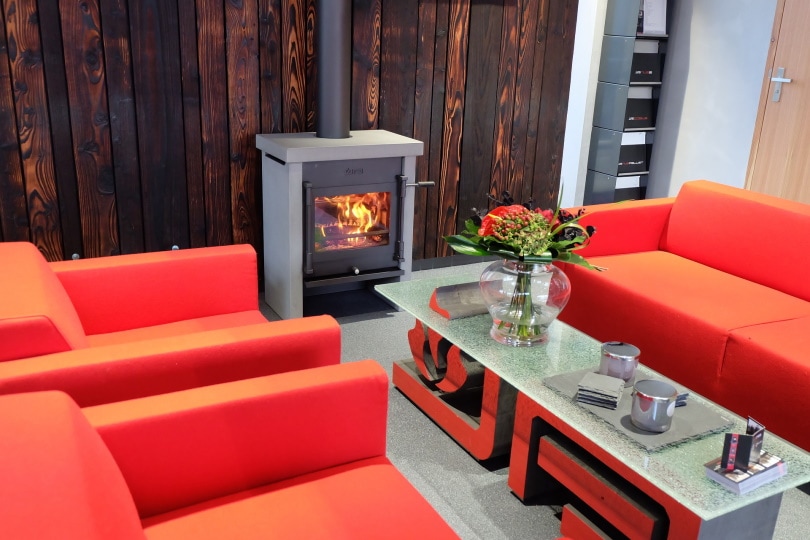
2. Unvented Combustion Heaters
These types of heaters are not ideal for indoor use because they can introduce noxious combustion by-products into your home. Some of the harmful by-products include nitrogen oxides and carbon monoxide. These heaters are also capable of depleting air inside an enclosed space.
Electric Space Heaters
While combustion heaters can warm up a cold room, electric space heaters are safer and are especially ideal for enclosed spaces. They may be expensive, but they do not create indoor air quality concerns. The most basic types of electric heaters are radiant and convection space heaters.
1. Convection Heaters
Convection space heaters feature a unique design that allows them to heat ambient air in a room and not the people or pets within. It works by sucking air from a room through a heated surface to warm it up, then pushing it back to create air circulation in the room.
Convection heaters repeat the air circulation process until the inbuilt thermostat detects that it has achieved the required room temperature. This space heater will also turn back on when ambient temperatures fall below a certain preset temperature level.
2. Radiant Heaters
Also known as infrared heaters, these devices function by heating the people and objects directly in their path instead of the ambient air. This is an ideal choice if you want to quickly get warm while sitting in specific rooms in your home, like the garage or office, where it would be impractical to heat the entire space.
Be that as it may, infrared space heaters raise obvious safety concerns that you should be aware of. First, these devices can burn animals and people if touched. Also, they can be a fire hazard if positioned in a space near combustible materials. This device should always be placed at least 3 feet away from anything flammable at all times.
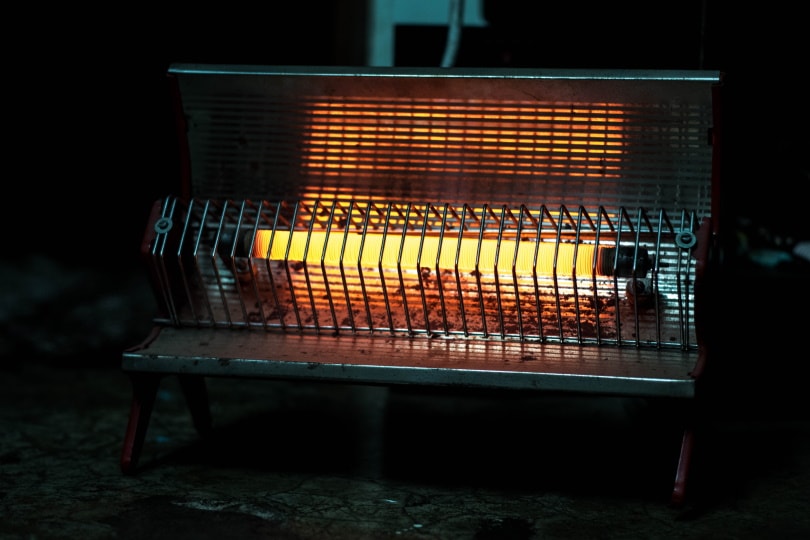
3. Micathermic Heaters
Also known as combination heaters, micathermic heaters offer the best of both options. They combine radiant and convection heating to quickly increase heat levels in a room while saving up on space. These types of space heaters will also allow you to retain moisture in your indoor atmosphere, unlike typical heaters which dry up the air in the room they operate. They are a good choice for almost any room in your house. Unfortunately, there is a downside to using micathermic heaters: these machines are very expensive compared to standard housewarming equipment.
Where to Use Space Heaters
Before you decide which type of space heater you need for what type of room, you need to ask yourself what type of heat you need. Do you want to heat the surrounding air so that the room you occupy is warm? Or do you want to heat your feet and hands after trekking in the cold? These questions will help you decide where to use your space heater.
Generally, space heaters can be used as seen below:
Supplemental Heat
As earlier mentioned, space heaters were designed to function as a supplemental heat source in case the central heating system doesn’t work or is inadequate. So, as a heat supplement, all types of space heaters, whether running on gas, electricity, or kerosene will deliver the required results.
If your space heater is unvented, make sure it is in a well-ventilated area. If vented, install it behind the outside wall. If you need to supplement heat in your place of business, smaller and compact electrical heaters like the infrared heater make a great option.
Single-Room Heating
Space heaters are also ideal for only heating up a single room where you are occupying. They are also suitable if you want to limit the overall electric bill cost by keeping the thermostat turned down. Also, if you live in a house where some of the occupants prefer a chilly atmosphere, the space heaters will reduce the chances of confrontations over the temperatures in the house.
Choosing the right size heater for your room will also help reduce the overall cost of heating your home. For small rooms, portable electrical heaters will be a safe bet. However, if you want to heat an entire building or a well-ventilated space like a garage or shopping area, kerosene space heaters will suffice.
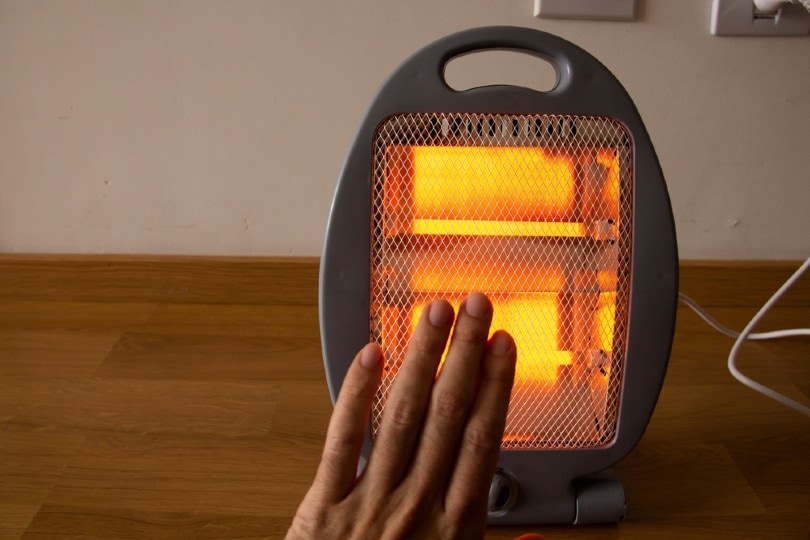
Advantages of Space Heaters over Central Heating Systems
There are several reasons why you should opt to upgrade to space heaters instead of relying on the more expensive central heating system.
- They Are Cost Effective; With space heaters, you need only consume as much energy as is needed to heat specific areas of your home. During the day when no one is around, you can shut down the main heating system and place portable heaters in living areas. Then let the heat spread out around the house. Portable heaters do not incur installation costs. They can easily be moved around the house to colder sections when need be. Also, maintenance of these devices is easy. You simply need to follow the guidelines in the owner’s manual to keep the unit clean and functional.
- They Are Environmentally Friendly: Since most electric space heaters allow you to only heat the areas you need to keep warm, you end up using less energy. Additionally, since converting electricity to heat barely uses any energy, you get to fully utilize the energy that you pay for. They also reduce the need to use polluting petroleum products like natural gas and oil. Infrared space heaters are a popular choice for environmentally conscious individuals looking to reduce their carbon footprint.
- They Are Versatile: If a central heating system is not a viable option for warming up your home, especially in garages or unfinished buildings, portable space heaters provide the best solution. They are also ideal if you want to keep some rooms hot and others chilly.
Disadvantages of Space Heaters
There are just as many disadvantages to space heaters as there are advantages. They are as follows:
- Space heaters have a shorter lifespan because they are not designed for long time use.
- Owning a space heater requires you to regularly carry out maintenance services. Since these devices can be fire hazards, they cannot be left unattended for a long time.
- These heating devices are only ideal for small spaces and cannot work efficiently outdoors or in large structures like shopping areas or malls.
- When space heaters are continuously activated, they can put a strain on your wallet. This is especially common if you use electric space heating models with high power costs. In the long run, the cost of your electrical bills will skyrocket.
- Space heaters cannot function as a complete heat source. They are only ideal for supplementing heat in your home. Whether electrical or combustion, you must at least have a complementary heat source to fully heat up your home.
- Using space heaters to heat your home can be dangerous. As Data from the CPSC shows¹, more than 25,000 house fires are caused by space heaters every year. They are also partly responsible for 6,000 burn-related accidents and 300 deaths every year. Hence, most homeowners argue that the potential hazards brought on by space heaters far outweigh the benefits.
Safety Precautions When Using Space Heaters
- Whether you have used a space heater in the past or not, always read the guidelines provided in the owner’s manual. Also, Keep the manual safe for troubleshooting in the future.
- Always keep the space heater away from flammable materials and objects. This also includes ensuring that the power cord doesn’t pass beneath carpets made from combustible materials. Also, ensure you understand the voltage requirements for your heater to plug it into the appropriate socket.
- Avoid placing your heater in areas prone to high humidity or leaks and splashes. Also, do not attempt to operate the heater with wet hands.
- It is not wise to place a portable heater in a poorly ventilated area or tight spot. The air must flow through the intake valve and when it is obstructed or blocked, your unit will spend more energy, thus increasing electricity bills and decreasing the lifespan.
- Never leave a space heater unattended for a considerable amount of time. If you plan to leave the room being heated, consider turning it off. Also, ensure it is on a stable and level surface that is high enough not to be knocked over by pets and kids.
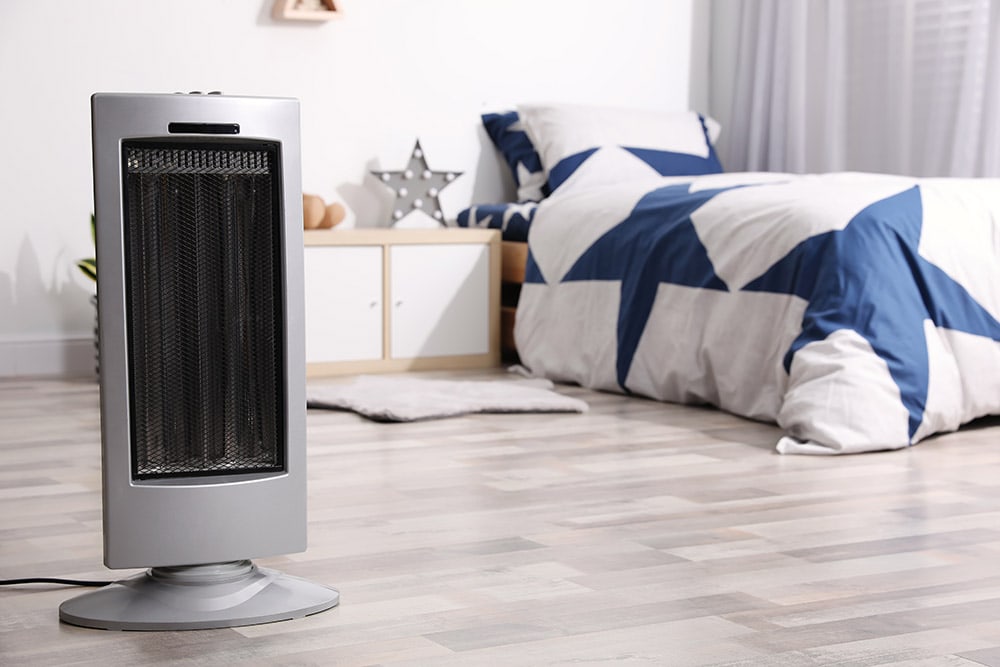
Frequently Asked Questions (FAQs)
Do You Need a Surge Protector to Plug in a Space Heater?
No, you do not need one. Always plug in your space heater directly to the wall without extension cables and surge protectors. They can overheat the electrical component, increasing the risks of burning down your house.
Are Space Heaters Sources of Carbon Monoxide Poisoning in a Home?
Absolutely, yes. These heating devices are the number one cause of CO poisoning, especially the varieties that rely on kerosene or natural gas as fuel. Therefore, consider investing in a heater equipped with an automatic shut-off feature that measures oxygen and carbon monoxide levels in your home.
Is It Cheaper to Use a Central Heating System or Space Heater?
When you calculate the overall costs, it is way cheaper to use the main heating system compared to using space heaters alone. Space heaters are only meant to serve as supplementary heating systems, not as the main heat source in our home. So, if you turn down the thermostat and install a space heater your electric bills will decrease.
Conclusion
Space heaters are great household products that can help add warmth and comfort to your home in cold weather. When properly utilized, space heaters can be energy efficient and lower the cost of your monthly electricity bill. And just like many products, these devices have some pros and cons. They are typically lightweight and portable enough to help you supplement heat in a specific area of your home. They are also great at regulating temperature to accommodate different room temperature preferences.
If improperly utilized, space heaters can be a fire hazard. Therefore, they are best used as a supplementary heat source instead of the main source of warmth in a house. You should also keep in mind the size of the room you want to place them in to ensure that room is heated to the required temperature.
If you follow the safety guidelines highlighted above, you can stay warm and comfortable no matter how low temperatures drop.
See also: 6 DIY Baseboard Heater Covers You Can Make at Home
Featured Image Credit: New Africa, Shutterstock
Contents


